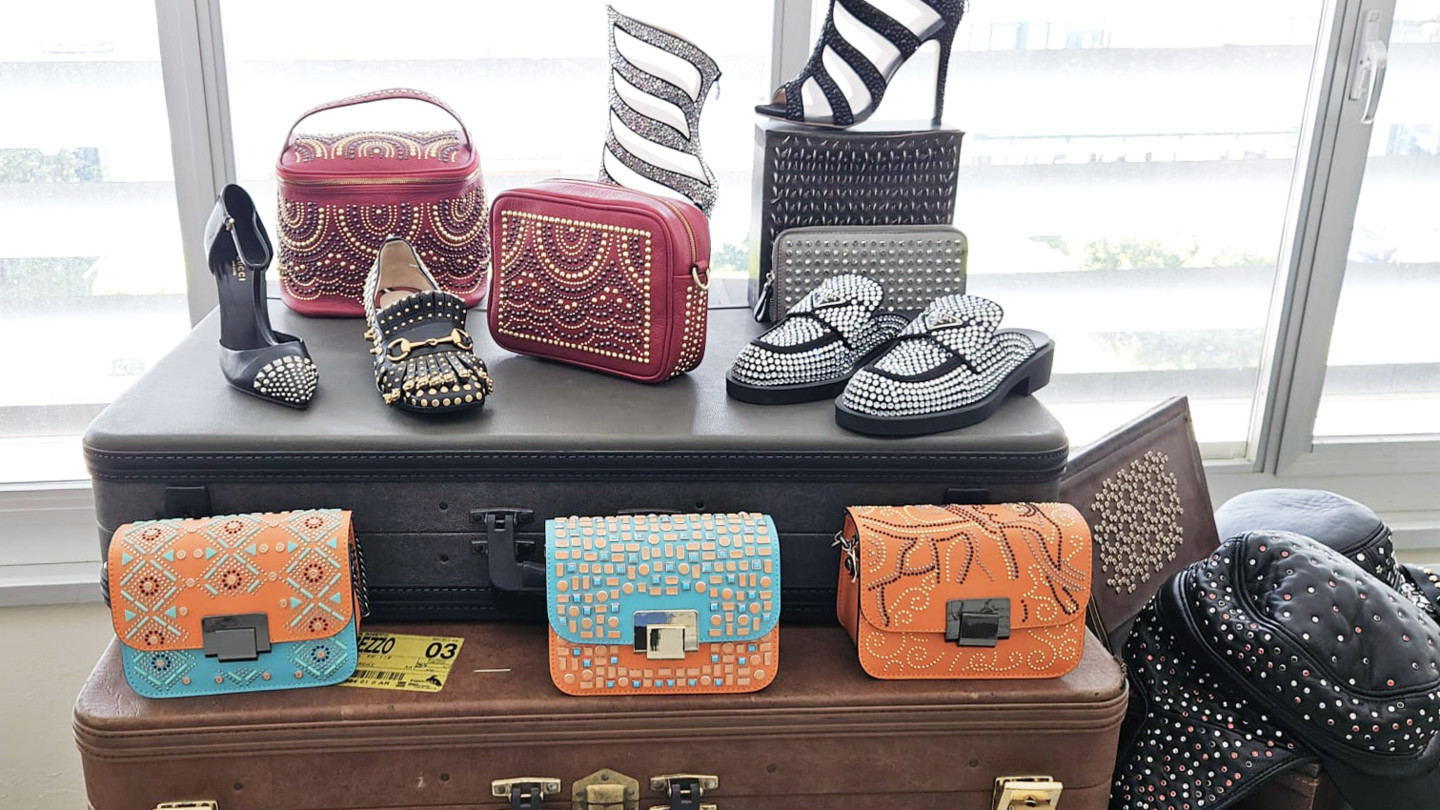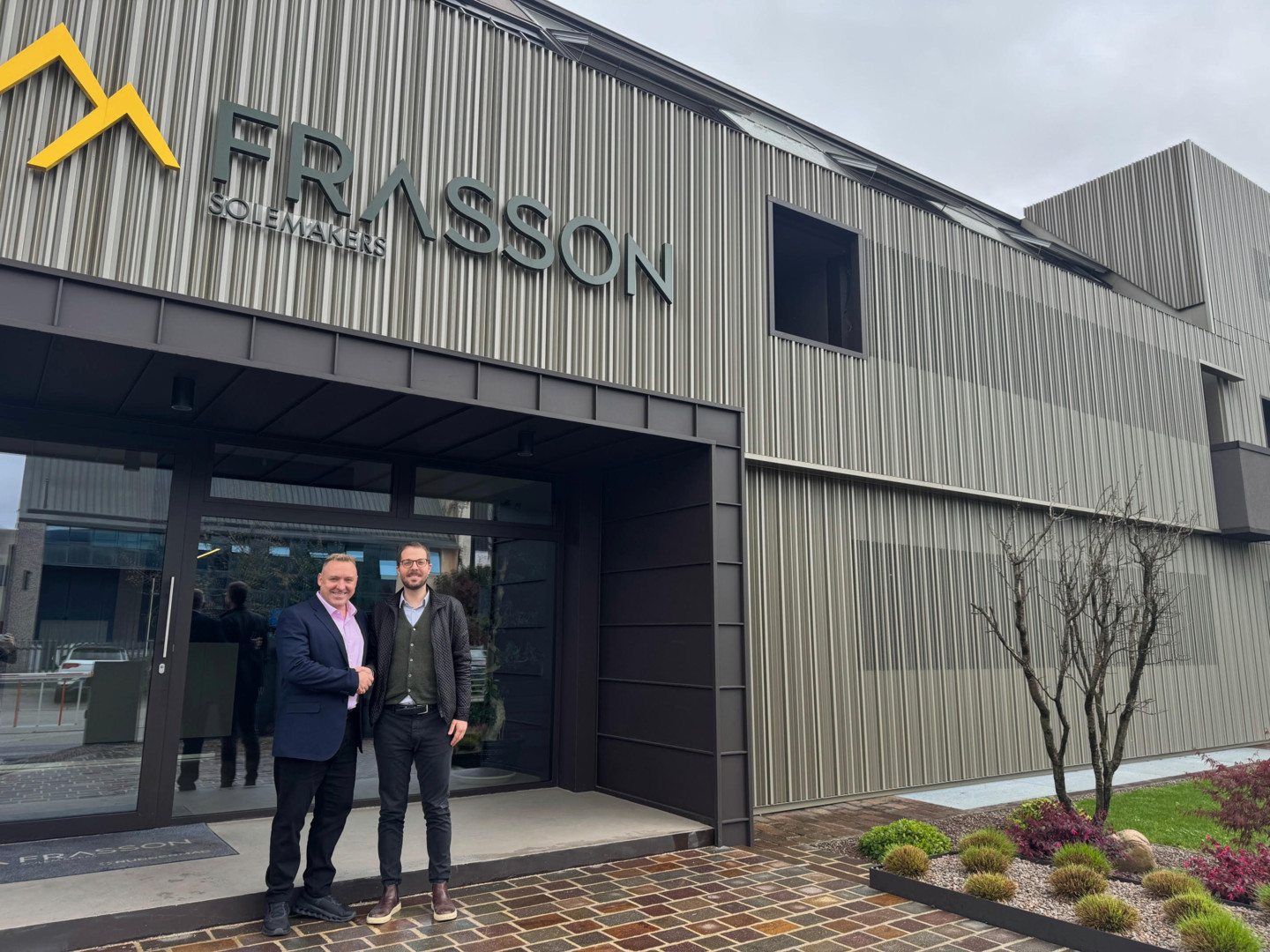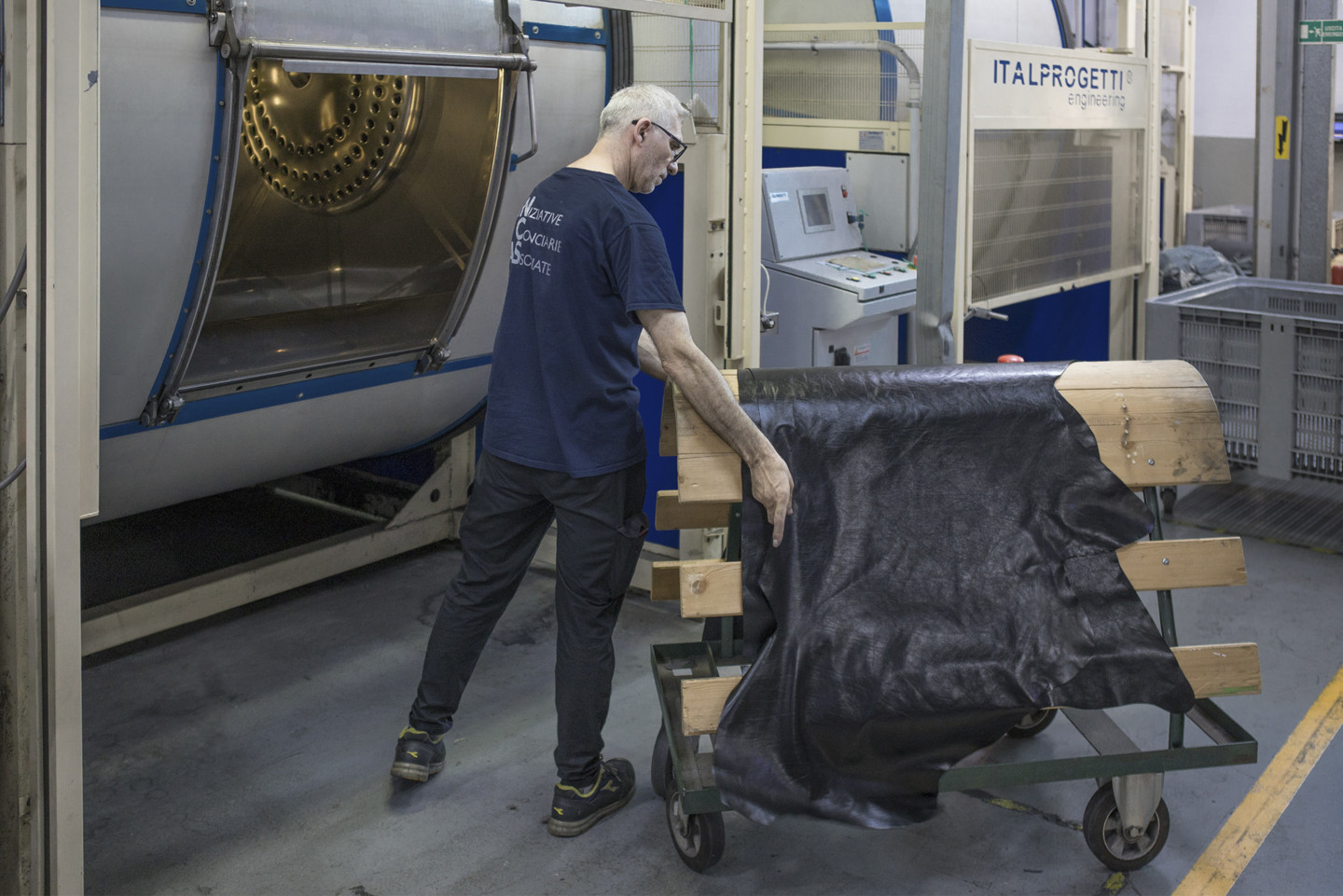The story of GEA GOMMA SRL is a family history, but also a story of commitment to the pursuit of quality by drawing on the natural heritage. In fact, the company was founded in Vigevano in 1952 on the intuition of Giuseppe Bonomi, who realised the potential of natural rubber for footwear production. This is how GEA GOMMA soon became a European leader in the production of natural rubber for footwear, an activity that is carried on today with commitment and success by the founder’s children: Daniela Bonomi, flanked by her three sons, William, Paola and Stefano Grivel.
The production complex we see today is the result of the expansion that took place in 1969, with the transfer of the business to Castello d’Agogna. In the industrial warehouses, which occupy an area of about 14,000 square metres, the entire process of manufacturing natural rubber, known internationally as ‘sole crepe’, takes place. The manufacturing process of the rubber soling sheets follows a strict and precise specification, which aims to guarantee the highest product quality and total respect for the environment.
The special processing to which natural rubber for footwear is subjected is technologically innovative, making GEA GOMMA one of the leading brands in the footwear accessories sector.
The manufacturing process of natural para rubber is environmentally friendly and non-polluting, consisting of the processing of natural raw rubber obtained from the latex of the Hevea Brasiliensis plant. The latex is purchased from plantations in South-East Asia, which produce the best quality rubber, and by means of mills, mixers and calenders, the raw rubber is processed into sheets of different thicknesses and colours. This process not only produces shoe soles of the highest quality, but also a rubber that is not chemically treated and retains its characteristics. This process, moreover, has the added value of not producing fumes, vapours, dust, and environmentally polluting waste. Moreover, any processing residue can be reused in the production cycle.





